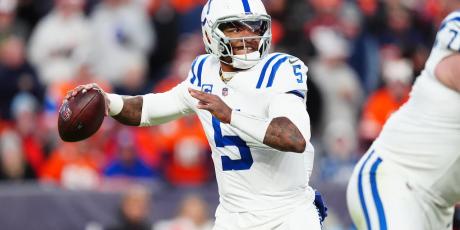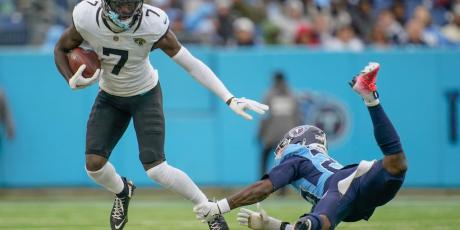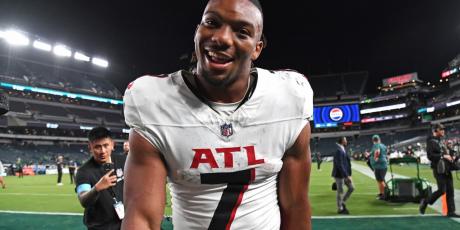Raybon's Review: DFS Lessons Learned in Week 8

Analyzing the prior week's results is one of the most valuable investments of your time as a DFS player. In this space, I will deconstruct the winning lineups from FanDuel and DraftKings' biggest GPPs, as well as note other important DFS takeaways from the past week.
DraftKings Week 8 Millionaire Maker Winning Lineup Review
Cubsfan333 took down first and second place in the Millionaire Maker, a large part thanks to leveraging the correlation of opposing offenses, particularly opposing passing games. Not only did both of his lineups contain six players each from the Seahawks-Texans game, but the only difference between each one was that they swapped starting QBs in that game. Salaries won’t always align to make a one-for-one pivot that simple, but this game played out with the classic shootout script, and that script usually involves both QBs piling on the points. But just how valuable was it to go overweight with exposure to both QBs in the Seahawks-Texans game? No other QB on the slate came within 17 points of either Watson or Wilson.
Fewer DFS players were on the Houston side, but as I talked about on Twitter last week, quality of offense determines the outcome of a matchup more than quality of defense by nearly a 2:1 ratio. This is mainly due to the fact that defenses react to offenses. The Houston offense erupting yet again also shows the limits of a small sample size: Three of Houston’s big games on offense came against the league’s worst defenses (Patriots, Titans, Browns), while another came in a wonky game script against the Chiefs that featured extended garbage time (and a Chiefs secondary that was still starting Terrance Mitchell and Phillip Gaines, who were bleeding fantasy production to WRs and have since been benched).
Opposing QB correlations tend to hit at the highest rate when you have two competent QBs facing off—you don’t want to go crazy with C.J. Beathard just because he’s facing Carson Wentz, for example.
If you were among the 97.7% who didn’t own QB Deshaun Watson and the 92.6% who didn’t own WR Will Fuller, how could you have landed on them?
As mentioned, the key was the correlation of opposing passing games; when one QB in a game scores 25+ points, the opposing QB does as well roughly six out of every 10 times. That—or that fact he had the top GPP leverage score among QBs in Week 8—is how you’d land on Deshaun Watson, which would then naturally lead you to DeAndre Hopkins, who ended up being too expensive to fit in these lineups, and Will Fuller, who came into the game averaging 19.3 yards per reception and 1.7 TDs per game this season. A natural argument against Fuller was that his otherworldly efficiency was bound to regress to the mean, and while that might be true, a counterpoint would have been that he had room to grow volume-wise. Fuller came into the game averaging only 4.7 targets per game, but a season-high 8 targets—which could have also been expected if you believed Richard Sherman would give Hopkins trouble, though that ended up not being the case—led to a season-high in catches (5) and receiving yards (125). Also, keep in mind that even though Fuller wasn’t quite at the sample size where fantasy points become more predictive than targets, most DFS players are weighting targets a lot more heavily than fantasy point production, when in reality both are nearly equally predictive even up to five games, and fantasy points are the most predictive stat thereafter.
If you were among the 96.2% who didn’t own RB Lamar Miller, how could you have landed on him?

- DFS & Season-Long Content
- Lineup Generator
- Optimal Cash & GPP Lineups
- Floor & Ceiling Projections
- -Leverage Scores
- -...and much much more!


















